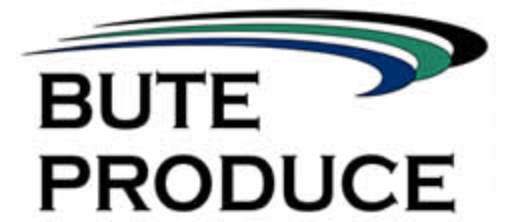We ran a survey during October to find out what attitudes and behaviours are prevalent on Isle of Bute linking decision about food and impact on climate change. The results were heartening, and we think useful to those who make up the supply for Isle of Bute.
61.9% of responses strongly agreed that it was important to them to know that producers were local to them.
Many people are conscious of what food is in season and are able to identify that when shopping, 34.92% strongly agreeing and a further 49.21% Agreeing.
There was a very strong response from Bute on the question of understanding the impact of what we eat has on climate change which suggests a really high awareness of our sometimes very long supply chains. 39.68% strongly agree and 44.44% agreeing.
When it comes to packaging 69.84% of responses strongly agreed that there should be minimal packaging or packaging that is recyclable.
There was a bit more of a mix when it comes to identifying where our food has originated from when buying in the supermarket. Still a very positive 19.05% strongly agree, and 50.79% agreeing however slightly over 30% were less sure.
Good news for our ambitions for Isle of Bute to be Scotland’s first Zero Waste Island – a whopping 93.65% stated they strongly agreed or agreed with the statement – “I am conscious of the food waste that I produce”. With landfill ban for biodegradable material coming into effect in 2021, a new solution for dealing with this waste will be needed. However with this level of consciousness, can we reduce the levels to bare minimum or ZERO!

Of course being mindful of these issues is one thing, putting them into practise can be a bit more challenging – especially living on an island where most of the food available to buy is not produced locally, and is more likely than not, to come from across the globe from mass producing manufacturers.
Just 11.29% of responses indicated their diet always had a high content of locally produced food, with 32.26% saying locally produced food was often a feature in their diet, and a further 41.94% including local food sometimes. Pardon the pun but the message seems clear, people on Bute like to include local produced food in their diet. Now how do we ensure more is available locally?
Similarly with seasonal food for our geography, this may not be produced locally but at least grown and eaten within the right time of year – no strawberries in November! 50.82% said they often had seasonal food as part of their diet, 13.11% saying they always had seasonal food as part of their diet.
The question relating to what is in our diet was a bit more revealing and suggests we could be making more effort to move to an increased plant based diet. Reducing the volume of meat and dairy in our diet is one way to have an immediate positive impact on global warming. Switching to buy as locally produced meat and dairy as we can, is a really easy option and one which supports our local Bute economy. 31.15% said their diet was rarely low in meat and dairy, with a further 4.92% saying their diet was never low in meat and dairy.
When it comes to buying habits and packaging, 45.16% stated that they often buy food with minimal or recyclable packaging, whilst 41.94% answered with “sometimes”. Is this a reflection on availability or the often frantic pace of just getting the shopping done amongst a busy day or week.
Again the odds favour more local producers when it comes to buying foods and considering the distance it has travelled with 40.32% “often” actively choosing food products that have travelled lower distances.
When it comes to consuming what we have bought, there are some savvy folk out there, with 34.43% always using what they purchase and wasting very little. 47.54% often achieving this carbon busting goal.

Interesting results! This year as part of our Bute Carbon Free Families project we would like to hear from people up for the challenge of making more positive choices about food. Are you concerned about the impact of our food supply chains on the plant? Would you be willing to participate in the project and let us know what changes you achieve? If so, please get in touch – you can drop into Bute Produce, email admin @ fynefutures.org.uk or telephone 01700 503181


0 Comments for “What can you do about global warming – food theme?”